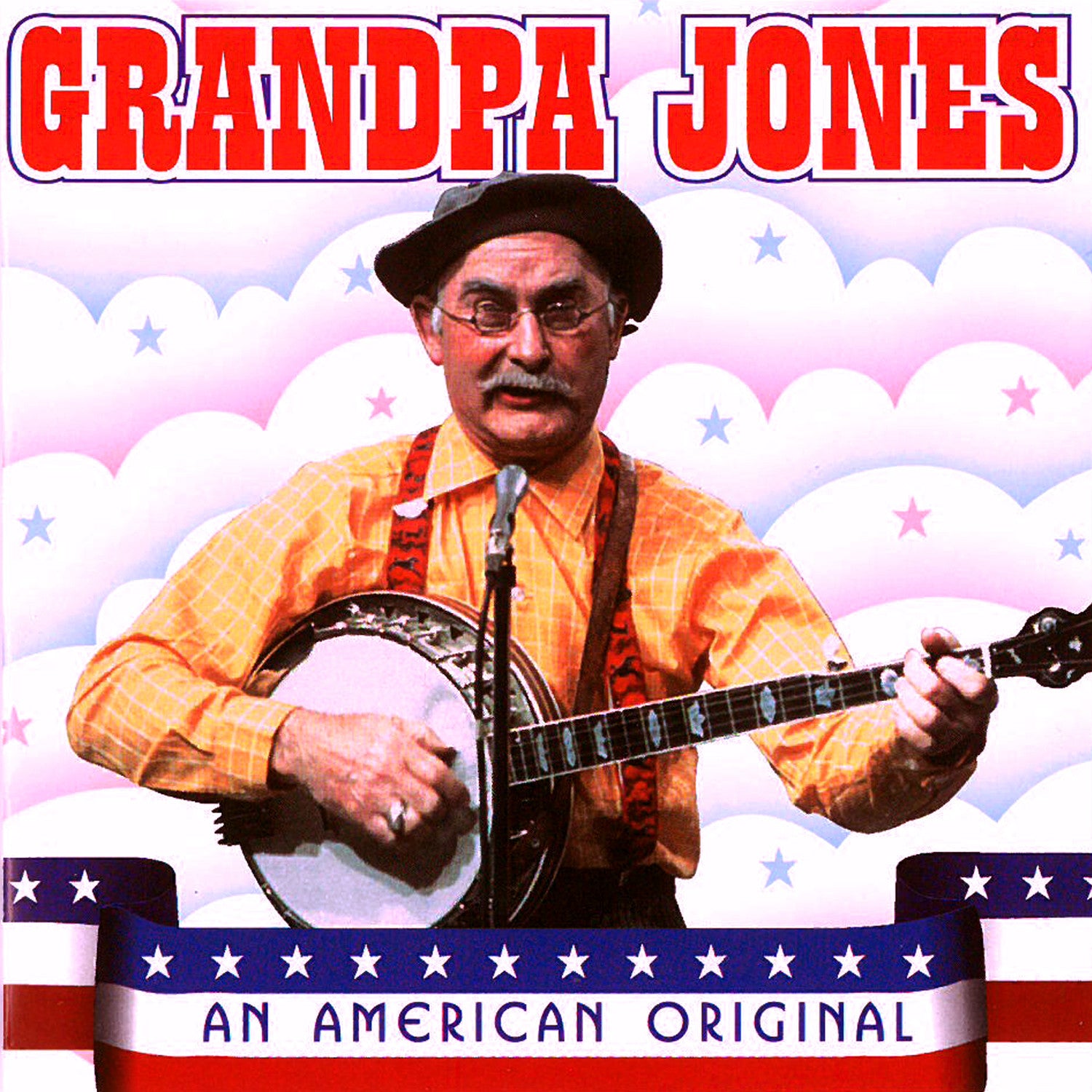Grandpa Jones
Louis Marshall Jones was born the youngest of ten in Henderson County, Kentucky in 1913. With a father who played fiddle and a mother who sang ballads and accompanied herself on concertina accordion, Jones picked up the guitar at a young age. By his teenage years he began singing and playing on the radio regularly.

At 22, he relocated to Boston to further pursue music. His cranky demeanor behind the scenes at early morning radio shows earned him the nickname Grandpa Jones. Jones took it in stride and built a persona around it that would help launch his career and last him the rest of his life. Nonetheless, he proved irreducible to a simple gimmick: a skilled songwriter, yodeler, singer, banjo player, guitarist, and humorist, Grandpa Jones was multitalented, delighting audiences with his performances at every turn.
After a long stint entertaining US troops in Korea during WWII, Jones made a move to Nashville where he became a regular fixture on a new televised show Old Dominion Barn Dance and, soon after, the Grand Ole Opry, where he entertained national audiences monthly on TV. From that point on, TV became the main stage for his career, a format where his adept musicianship and comedic personality could shine. His fame reached even greater heights when he joined the country-fried variety show Hee Haw in 1968 where he’d remain, charming audiences, until 1993.
In 1946, Jones married Ramona Riggins, a skilled and accomplished mandolinist, guitarist, fiddler, and singer who became a collaborator of his for life. The two appear together on six albums for CMH. These include a string of albums from 1976 to 1985 (The Grandpa Jones Story, Family Album, Old Time Country Music Collection, Family Gathering and Farm & Home Hour, recorded with country legend Merle Travis) as well as the 1998 compilation An American Original, commemorating Jones in the year of his passing.
In 1978, Jones was inducted into the Country Music Hall of Fame, who called him one of “country music’s most dedicated champions of old-time music.” He passed in 1998, leaving behind him a legacy as a much-beloved American icon.


